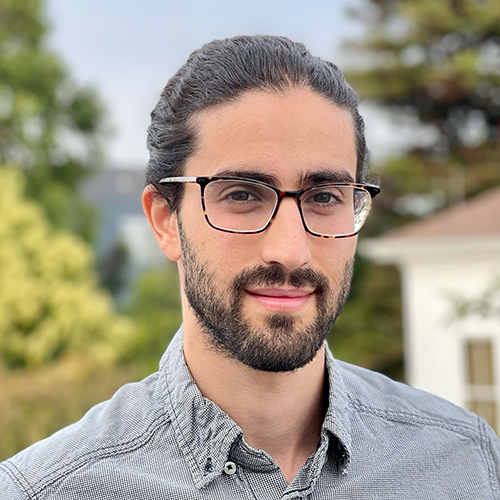Ben Fisch: Increasing Privacy and Verifiability on the Internet
The School of Engineering & Applied Science is proud to welcome its newest faculty members for the 2022-23 academic year. The large influx of faculty members – 13 so far, with more to be announced soon – marks the rapid growth of the School and investment in the research areas illustrated in the SEAS Strategic Vision.
The latest faculty arrivals are valuable additions to the chemical and environmental, computer science, and electrical engineering departments. Their expertise includes sustainability, artificial intelligence, robotics, quantum computing, cybersecurity, and optoelectronic materials.
Upon their arrival, we asked these new faculty members questions about their work, their motivations, potential collaborations, and much more:

Ben Fisch, Computer Science
Hometown:
Princeton, NJ
Prior academic history:
- University of Pennsylvania (BA)
- Stanford University (Ph.D.)
How would you summarize your research?
The major theme of my research is privacy and verifiability on the internet: enabling users to enjoy the many digital services available today, without the need to trust third parties for the integrity of these services or to safeguard their private information. My research has applications to blockchains such as Bitcoin or Ethereum, which have significantly gained popularity in recent years. These large-scale deployed systems not only increase privacy and verifiability for applications in finance and beyond, but are also operated by thousands of machines dispersed over the internet, as opposed to being controlled by a single business or entity. While I primarily focus on designing new cryptographic protocols, my research has drawn from multiple areas of computer science, including cryptography, distributed systems, hardware architecture, and economics.
What inspired you to choose this field of study?
I was initially inspired by cryptography because it is deeply mathematical yet highly applied. Moreover, it struck me as a field with a rich theory that is underutilized in practice. Since then, I witnessed the industry demand for advanced cryptographic tools explode, driven by factors such as the cryptocurrency boom, major data breaches, consumer privacy violations, as well as increasing societal awareness and concern over data security and privacy.
Where do you see the field 10 years from now?
Advanced cryptographic tools, such as zero-knowledge proofs and verifiable computation, which only 10 years ago were considered theoretical, are now being deployed at unprecedented rates into real-world systems with millions of users and billions of dollars at stake. I believe we will continue to see this evolution from theory to practice, not only with proof systems, but also other capabilities including fully-homomorphic encryption, secure computation, and program obfuscation. Privacy, verifiability, and decentralization will become requirements of many internet-based applications, from cloud computing to digital finance. To support this paradigm shift, the field will need to expand its attention to overlooked weaknesses, such as the physical architecture of the internet itself.
What brought you to Yale?
Yale attracts the best students in the world and that's where any professor wants to be. Moreover, I was drawn by the opportunity to be a part of Yale's fast growing engineering department. I am excited to help make Yale a leader in my field, not only in terms of its research output, but also its graduate and undergraduate curricula.
What areas outside of Computer Science do you seek to create impactful research collaborations or partnerships?
Economics, law, political science, and global affairs, to name a few. Economics and game theory are directly relevant to the secure design of systems (like blockchains) with increased privacy, verifiability, and decentralization. The social impact and survivability of these systems is connected to global law and policy.
Are there any courses that you look forward to teaching/creating?
I will teach a new course on blockchains for both graduate students and advanced undergraduates in computer science.
What are your interests outside of the lab?
Rock climbing, social advocacy, entrepreneurship, and building open-source systems that people will use.
What is the best New Haven Pizza?
I have yet to find out!

